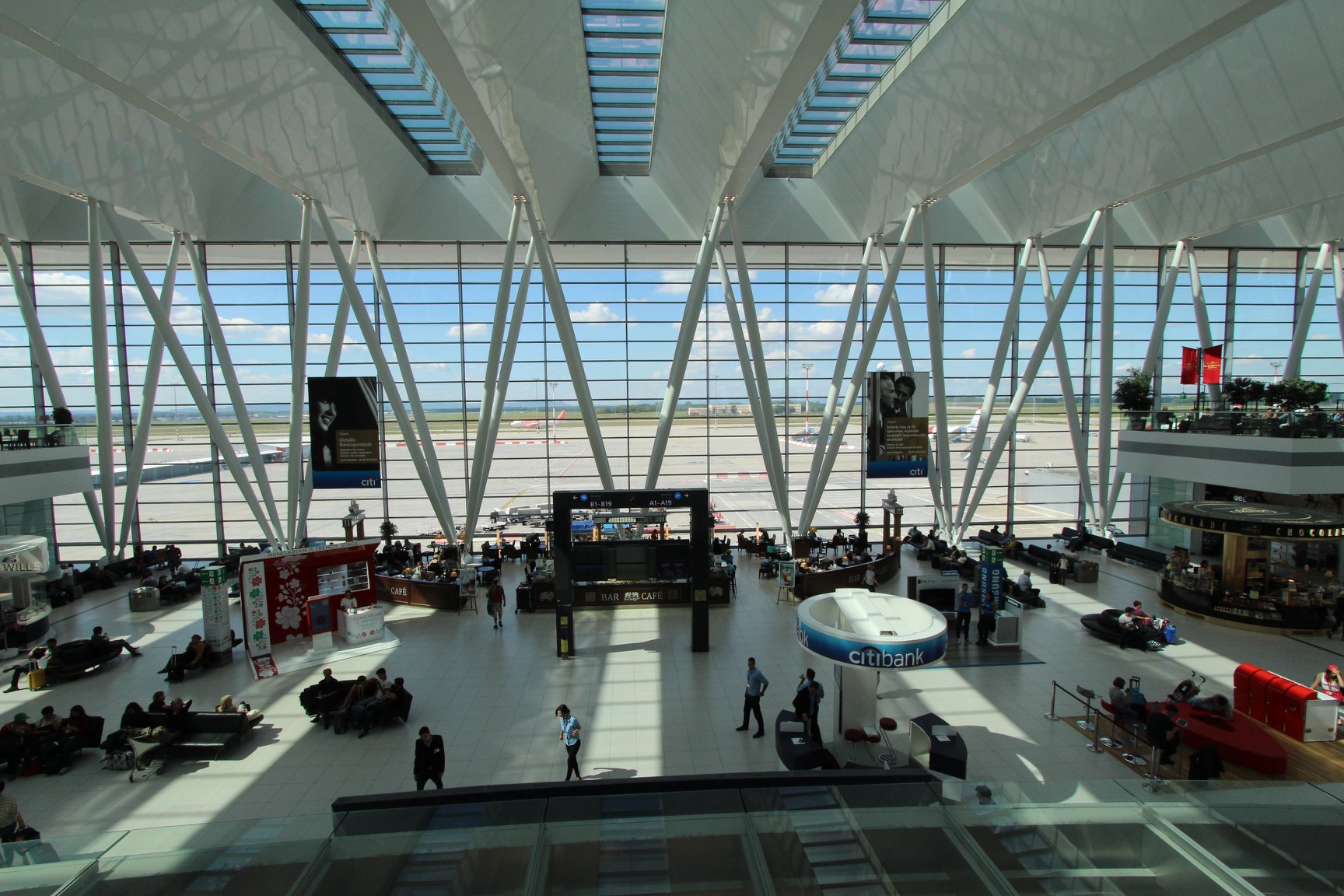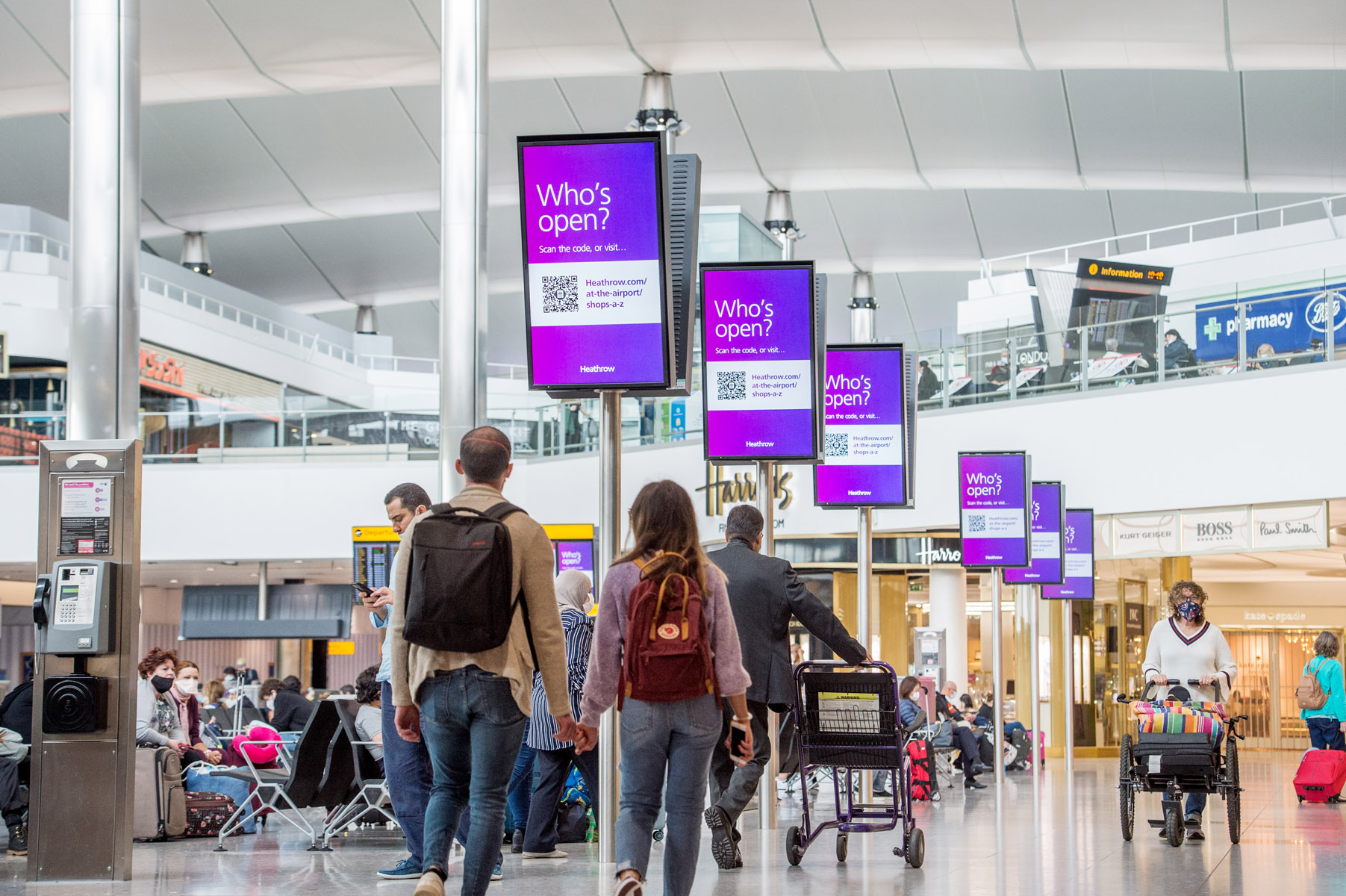Construction of Terminal 3 to begin in 2025 at Budapest Airport
Thanks to the suitably diverse airline and passenger mix, Chris Dinsdale, the new, recently appointed CEO of Budapest Airport Zrt. expects a faster traffic recovery than at other airports in the region. In the interview with airportal.hu, he stated that the construction of the new passenger hall could commence in 2025, and they would like to temporarily reopen Terminal 1 until then, with the addition of a pier. The planned multistory car park will be constructed in a slightly different location, and a complex public transport hub is planned in its place, which will be connected to the future railway station.
What are the biggest challenges for Budapest Airport and for you personally during the coming years and beyond, over the next 3-5 years?
We must rewrite the airport’s medium and long-term strategy, and we need to review whether our earlier objectives and visions are still correct, or need to be replaced. The crisis has overwritten everything; we must adapt our concepts, priorities, business plans and development schedule. We cannot ignore global trends either; sustainability, the user experience, digitization, changing communication platforms, to name a few, all shape our operation on a daily basis. We must continue to develop in these areas and examine them with an open mind that is accepting of change. We have always set ambitious targets which drive and shape the entire company and its ecosystem. We’ve had a very difficult two and a half years, we have drawn a lot of conclusions from these events, which has ultimately transformed our corporate culture and approach. We need to open a new page in 2021 and the team is ready for that.
In addition to the numerous challenges, did the crisis create opportunities for Budapest Airport as well,in terms of regional competition between nearby capital airports, for example? What are these and how do you plan to exploit them?
Budapest Airport is continuously competing with other airports in the region and beyond, as airlines decide on which destinations to operate based on profitability. Airlines have the ability to create demand, as they market the most profitable destinations. While other airports increased their prices in 2021, BUD kept them unchanged, and worked out a new, multi-year incentive scheme together with the airlines already in 2020 that is designed to support a quick recovery.
What new challenges must airports face on account of the global pandemic and after the pandemic? Can there be winners in this crisis, how does Budapest Airport position itself to make sure that it should emerge from the crisis in the best possible shape?
It is likely that airports will have to comply with various health regulations, not only in the short term but also going forward, as part of our normal operations. This would mean, for example, that some of the measures introduced earlier may need to be maintained longer term, or that the vaccination and the COVID testing of passengers need to be checked before traveling or upon arrival.
We have been preparing for months for the expected ramp-up of traffic, while a multitude of developments have been implemented at the airport in the past two years; more than ever before. A new passenger pier, reconfigured and refurbished interior spaces, capacity expansions, along with the refurbishment and expansion of infrastructure. We are continuously discussing with our service partners – primarily the ground handlers, who perform several passenger processes, such as check-in, baggage loading / off-loading and bussing – on how we can comply fully with the modified regulations and still keep travel enjoyable.
That’s what we see at the moment, but it is also possible that the next few months will bring new measures.
The conditions of reopening are still shaping up in Hungarian, foreign and airline regulations; we will have to adjust to these. So flexibility will be key in the coming period; airports that can adapt quickly to the current, very fluid environment will have a competitive advantage over others.
In the longer term, sustainability must be one of our primary focuses. Here I refer not just to carbon emissions and achieving net zero as soon as possible, but also the many other aspect of sustainability. These include our impact on water resources, waste management and, most importantly, the impact on the communities that are close to the airport. Our relationship is a symbiotic one, where we mutually rely on each other. As such, the airport must continue to make and increase its efforts to ensure that there is no undue impact on these communities. This will be a focus area, and one where both sides will need to come together to find compromises.
How do you see competition within the region and between regions over the coming years? Can Budapest Airport profit from the fact that travel needs and habits have changed? What are the segments where the recovery is likely to be faster and where could this process take longer?
Ultimately, one of the main aims of all our work is that passengers should enjoy their journey, and we must be competitive on a regional and European level. In 7 years, we won the best airport in the region award 7 times, and in cargo, the record numbers for 2020 and the first months of this year prove everything. This shows that we have done many things right in the past, but as discussed earlier, the last years have taught us valuable lessons in a dramatically changing environment.
The pandemic will clearly impact travel habits, as you say. The segment of visiting friends and relatives, mainly by those working abroad, made up a considerable 41% of the 2019 traffic at Budapest Airport; this is expected to come back fastest. City breaks will also recover moderately quickly, which is a major segment at 35% in 2019. Business travel and long haul traffic, on the other hand, will probably return slowly over the coming years, but these only made up 18% and 5% in 2019, respectively. Here I refer to 2019 traffic since this was our last “normal” year of operations.
We are lucky because we will likely recover faster than our competitors, due to the above passenger mix and always ensuring a favorable, well diversified airline mix, where we have a healthy balance between national and “low-cost” carriers, which both account for approximately 50% of our passenger mix.
Is it possible to expand check-in and security screening capacities, for example, under the current framework provided by Terminal 2, or the next step is the construction of a new terminal? How long will construction take? If you expect 2019 traffic to return by 2022-23, as can be forecast from previous statements and the estimates of international experts, when do you have to begin the project?
We expanded the security screening capacity on the Terminal 2B side last year; thus, at present, 8 screening lanes await passengers on the A side and 10 on the B side. It is possible to establish two more lanes on the A side, with significant reconstruction. With regard to the check-in hall, we are striving to operate new technologies which replace the check-in counters. That is why we installed self-service baggage drop-off systems. Passengers can tag their own bags and dispatch them to the baggage sorting facility by placing them on the belt, thus speeding up the check-in process and easing their journey. The benefit of these units is that you can also later place them in areas outside the terminal or even at remote locations, for example downtown. The passenger journey will continue to evolve, and we must be a front runner in these changes.
From the commencement of construction until the completion of the new Terminal 3, we are calculating with a period of approximately 3 years, which is dependent on the extent to which construction can be phased, and seamless operation. According to the current forecasts, the construction of the main new terminal area could begin in 2025, but this timeline will be driven by the pace and the structure of the recovery and is hence likely to change.
Having said that, until the completion of the new terminal building, we do have the intention to temporarily reopen Terminal 1, with the addition of a pier to increase capacity and improve the passenger experience. We originally planned to reopen T1 this year, but this too has been delayed because of the pandemic, just like the construction of the new terminal and the related infrastructure but we hope to get the needed permit soon.
Read the full interview HERE.

Read alsoBudapest Airport gets its third terminal!
Source: www.bud.hu
please make a donation here
Hot news
“Hungarian Iron Dome” deployed near the Ukrainian border, expert says Putin will attack Hungary
International organization confirmed that the Paks NPP operates safe, dependable
Regime change in parking in Budapest: Parking ticket machines may be removed in 2026
Chinese CATL to begin production next year in Hungary!
Special Japanese-Hungarian storytelling collaboration in Budapest – PHOTOS
PM Orbán talked about the the war’s end in Ukraine, invites Netanjahu to Budapest – UPDATED




